ALfA Pedagogy
Lorem ipsum dolor sit amet consectetur adipisicing elit. Doloremque, voluptate nulla! Officia assumenda unde voluptatem explicabo error aliquid repellat et nostrum a? Inventore sunt quidem natus laudantium tempora eos vel.
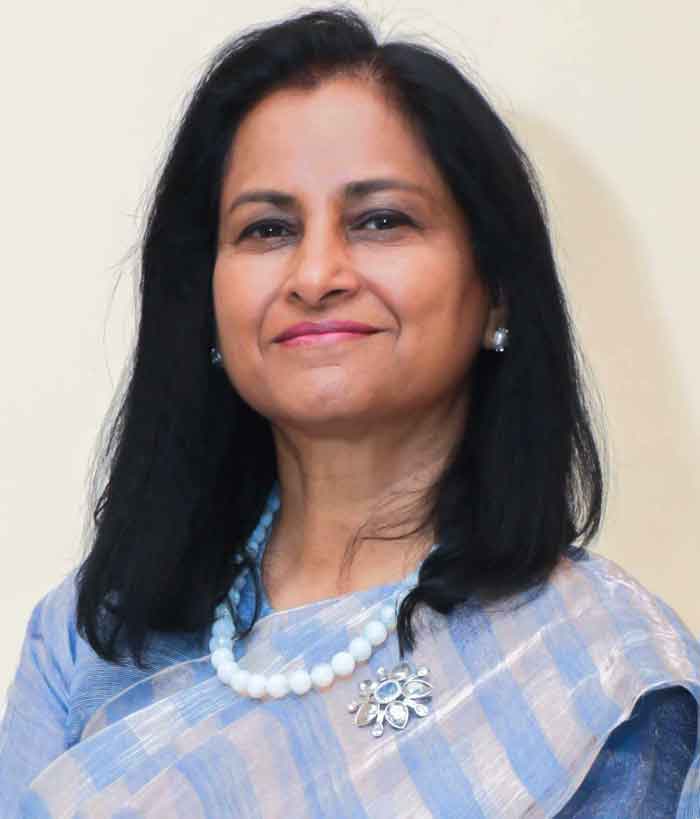
City International School promotes a broader and bolder education. The process of learning incorporates the 21st Century 4C Skills and 4C Traits.
CIS is constantly innovating. CIS teachers are on-going action researchers.
Children actively teach and learn with each other, creating a dynamic and happy learning environment. Research shows both predictable patterns of learning and boredom reduce learning outcome. You can walk in any day and you will see the children engaged in a myriad activities.
We follow IPSATIVE: Compared with self ideology and the Accelerating Learning for All pedagogy. The intrinsic motivational processes ensure children are confident and have the skill to learn by self. Parents report a greater level of effort and self-study by the children.
The end result is a broader and bolder outcome. All children thrive.
Sunita Gandhi, Founder-Director, CIS and NIS Group of Schools
Chief Academic Advisor, City Montessori School, World's Largest School
Ph.D. (Physics), Cambridge University, UK
Former Economist, The World Bank, USA
Founder-CEO, DEVI Sansthan, INDIA
CIS fosters a comprehensive and progressive learning environment, equipping students with the essential skills they need to succeed in the 21st century. This includes fostering collaboration, communication, creativity, critical thinking, character, and citizenship.
ALfA seamlessly integrates the skills and traits of a twenty-first century learner. These 8Cs cannot be taught from a textbook, but rather acquired while working with each other in the everyday context of a classroom. The paired setting creates a safe environment in which learners feel free to share and express.
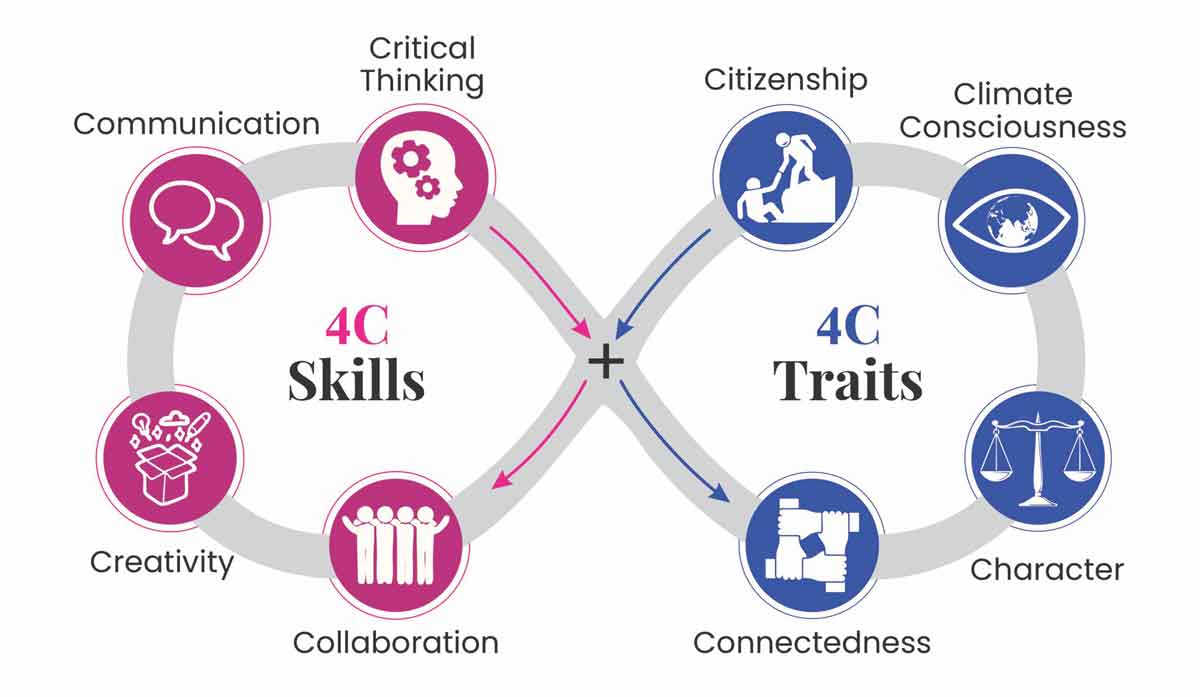
Lorem ipsum dolor sit amet consectetur adipisicing elit. Doloremque, voluptate nulla! Officia assumenda unde voluptatem explicabo error aliquid repellat et nostrum a? Inventore sunt quidem natus laudantium tempora eos vel.
Lorem ipsum dolor sit amet consectetur adipisicing elit. Doloremque, voluptate nulla! Officia assumenda unde voluptatem explicabo error aliquid repellat et nostrum a? Inventore sunt quidem natus laudantium tempora eos vel.
Lorem ipsum dolor sit amet consectetur adipisicing elit. Doloremque, voluptate nulla! Officia assumenda unde voluptatem explicabo error aliquid repellat et nostrum a? Inventore sunt quidem natus laudantium tempora eos vel.
ALfA is a structured pedagogy, with modules custom-designed to facilitate paired and activity-based learning.
| CIS | Standard Textbooks | |
|---|---|---|
| Learning methodology | Student-led paired work Experiential learning about 80% of the time. | Teacher-led whole class Experiential learning about 20% of the time. |
| Grouping strategy | Random Pairing No child feels that there are low expectations of them. | Ability Grouping Those in 'remedial' group lose self-esteem. |
| Timetabling | Significant Flexibility Students can progress through the books at their own pace. | Detailed Prescriptions Rigid, many are left behind the curriculum. |
| Type of questions | Higher-order thinking Students pose questions for each other, developing cognitive skills. | Lower-order questions Matching, true & false, fill in the blank style. |
| Numeracy Methodology | Simple TLMs for All Ice-cream sticks & matchsticks are provided to enable all children to participate. | Insufficient TLMs Pictorial representation of activities in books, but without TLMs for everyone to participate. |
| Literacy Methodology | Known to Unknown Sound is derived from a picture, which is associated with a letter Substantial reading practice for each matra. 9-10 letters introduced per page. Writing introduced after reading. | Unknown to Known ‘A se Anaar’. One or at most two letters introduced per page Minimal reading practice for any given matra. Writing introduced simultaneously with reading. |
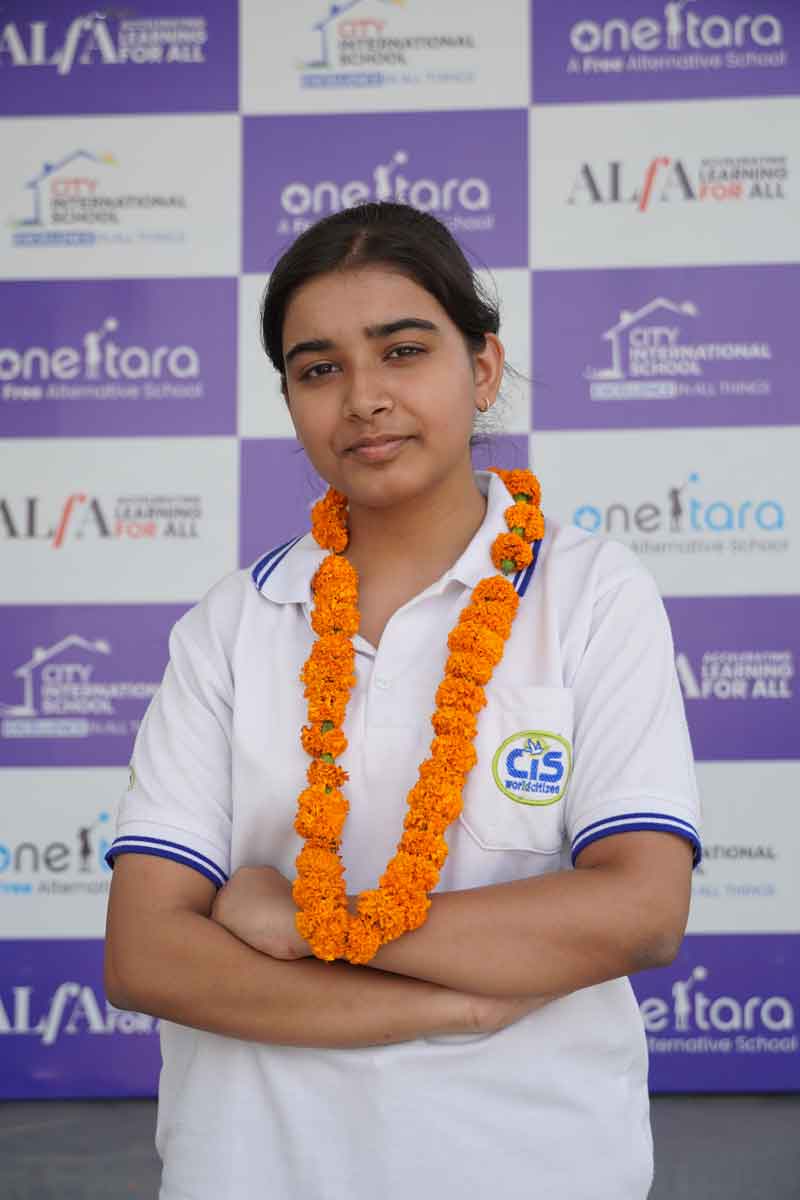

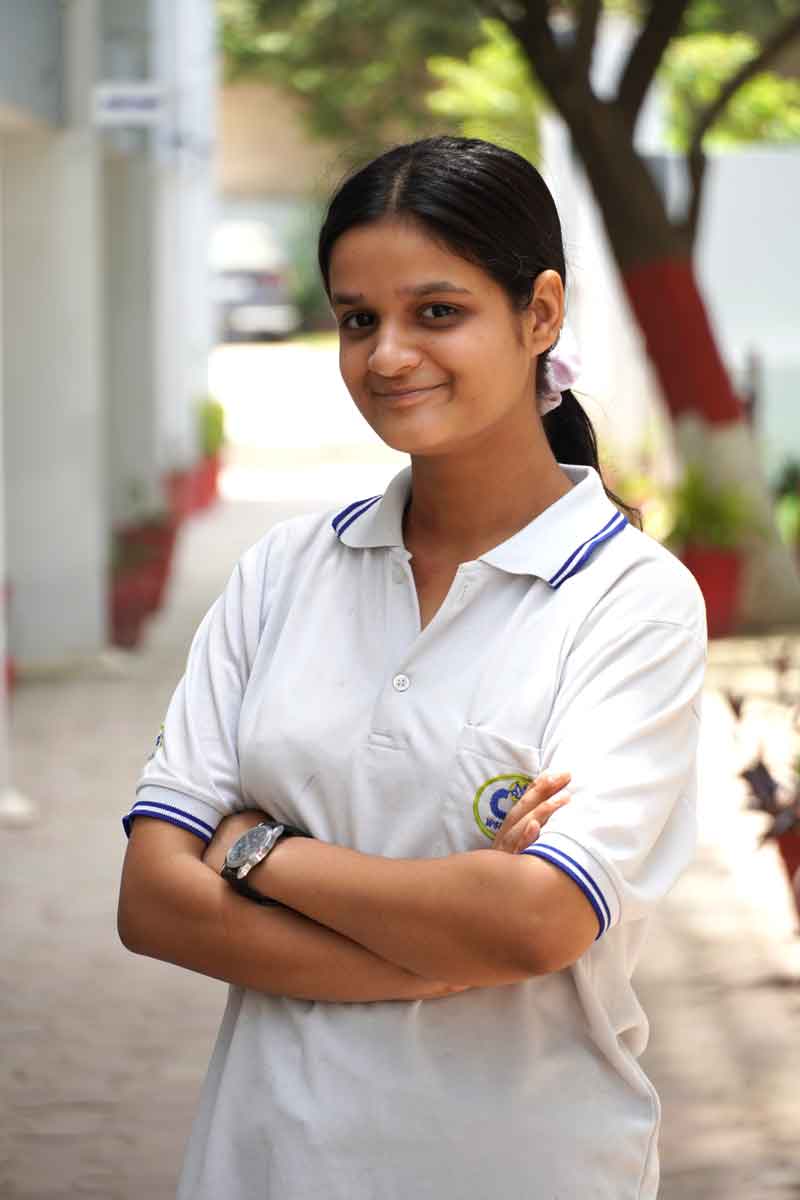
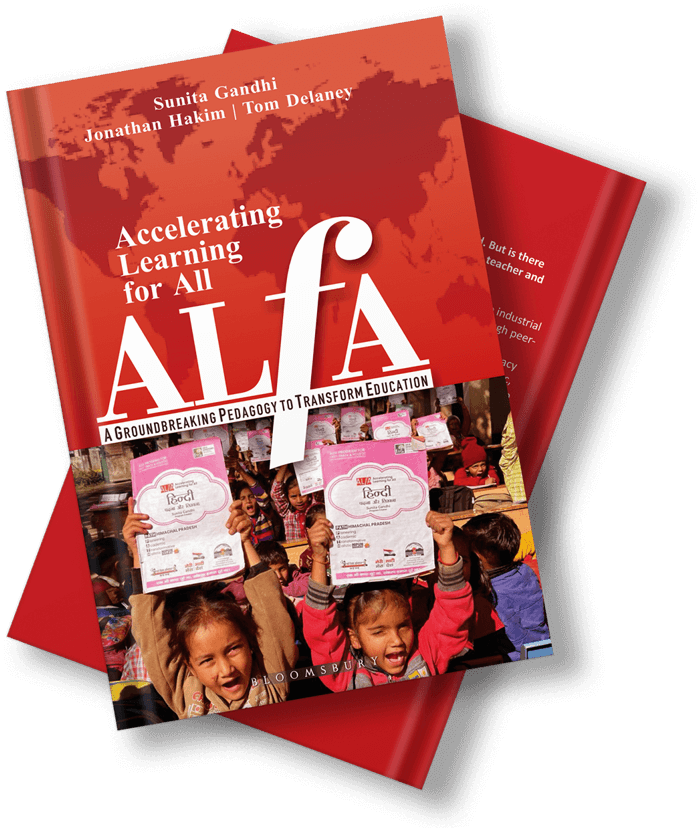
ALfA breaks the shackles of the industrial education system, revolutionizing the school experience through peer learning and hands-on activities.
“All students should be able to learn to read quickly so that they can maximize their academic potential and ALfA does that.” Jon Corippo Founder of EduProtocols